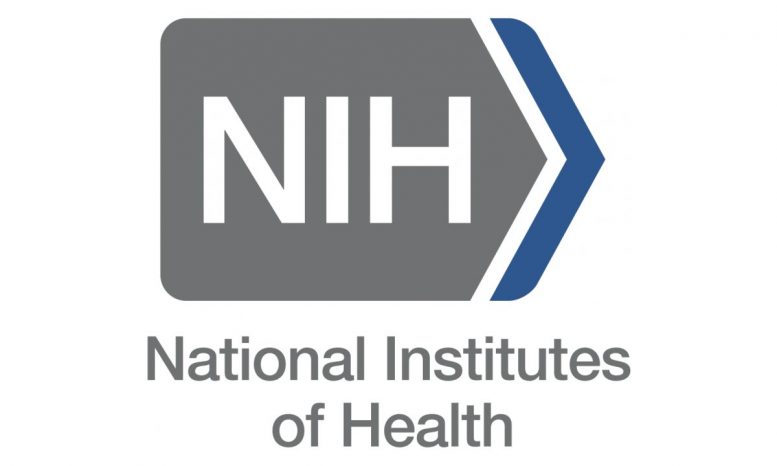
New paper highlights history and recent successes in advancing research from concept to commercialization.
Small business program funding from the National Institute on Aging (NIA), part of the National Institutes of Health, helps advance research on care interventions, diagnostic tools, and therapies for Alzheimer’s disease and related dementias. A new paper, published August 10 in Alzheimer’s and Dementia: The Journal of the Alzheimer’s Association, describes the impact and case studies of NIA’s $280 million investment in this research over the past 11 years through more than 600 grants to over 230 small businesses in 37 states.
“Small businesses play a crucial role in research to discover effective prevention and treatment strategies for Alzheimer’s and related dementias,” said NIA Director Richard J. Hodes, M.D. “This paper provides the historical context of NIA’s funding in this highly competitive area and features some of the successes made possible through our federal investment.”
NIA is the lead federal agency for Alzheimer’s and related dementias research. Alzheimer’s is a brain disorder that slowly destroys memory and thinking skills and, eventually, the ability to carry out the simplest tasks. While it is the most common cause of dementia in older adults, it is not a normal part of aging.
Results driven investments
NIA’s Small Business Innovation Research (SBIR) and Small Business Technology Transfer (STTR) programs are congressionally mandated set-aside funding mechanisms designed to help U.S. small businesses engage in R&D that has a strong potential for commercialization. Due to recent increases in the NIH budget for Alzheimer’s and related dementias research, most of NIA’s small business investment referenced in the paper — approximately $207 million — was spent between fiscal year (FY) 2015 and FY 2019.
“The SBIR and STTR examples in this paper show how important public support is to start-up companies pursuing early-stage development of aging-related innovations and how that funding carries research forward and bridges gaps companies may face in their efforts,” said Todd Haim, Ph.D., chief of NIA’s Small Business and Training Office and co-author of the paper. “NIA small business funding is working by keeping companies financed through the early and high-risk stage of development so they can fulfill their important work of advancing Alzheimer’s and related dementias research and get interventions to patients faster.”
Examples of research showcased in the report include:
Care intervention: ActivePERS, an advanced medical alert pendant with automatic fall detection, fall risk assessment, and activity monitoring, is an example of a technology to improve care and enable more independence for older adults. Through multiple SBIR funding awards, the biomedical engineering company Biosensics developed and validated a set of fall detection technologies that became a part of ActivePERS. Once commercialized, ActivePERS was licensed by and integrated into medical alert devices sold by GreatCall, which is now part of Best Buy Co., Inc., resulting in the technology’s widespread availability.
Diagnostics: Getting an accurate, early, and non-invasive diagnosis of Alzheimer’s disease may open opportunities for people to participate in clinical trials. In particular, those with an early diagnosis can take steps to prepare, as well as look into strategies that may delay the onset of symptoms. With NIA SBIR-funded support, C2N Diagnostics developed PrecivityAD, the first amyloid blood test to become available to doctors, who can send blood samples to C2N’s lab to analyze blood for amyloid. While this test does not diagnose Alzheimer’s per se, it can help doctors evaluate their patients with cognitive disorders. In one study of 686 patients over age 60, the PrecivityAD test correctly identified brain amyloid plaque status in 86% of patients.
Therapeutics: Cognition Therapeutics has developed a small molecule that has shown potential in early clinical trials. The molecule, CT1812, normalizes brain cell pathways that are disrupted in Alzheimer’s and enables the protection and restoration of synapses. After traditional NIA-funded grants supported data collection to confirm the safety of CT1812, SBIR grants resulted in FDA Fast Track designation in 2017 for the treatment of people living with Alzheimer’s. A $1 million Fast Track SBIR award to Cognition Therapeutics resulted in three ongoing early (Phase II) clinical trials, and enhanced partnership opportunities. In June 2020, NIA awarded Cognition Therapeutics $75.8 million over a 5-year period to support a Phase II study in collaboration with the Alzheimer’s Clinical Trials Consortium (ACTC).
An open look at a public effort
For their analysis, the authors of this paper used publicly available information to identify and track progress of the companies that received SBIR or STTR funding. The NIH RePORT database was used to identify all new small business program grants awarded during FY 2008 through FY 2019. Commercial databases GlobalData Medical Devices and GlobalData Pharmaceuticals were used to ascertain the post-award success of these funded companies.
SBIR and STTR funding programs are valuable resources that companies can and have successfully used to bridge financial gaps and show their strength and value in the business world. This funding is often critical for securing downstream private investments, developing partnerships, and launching innovations to market.
Reference: “National Institute on Aging seed funding enables Alzheimer’s disease startups to reach key value inflection points” by Armineh L Ghazarian, Todd Haim, Samir Sauma and Pragati Katiyar, 10 August 2021, Alzheimer’s & Dementia.
DOI: 10.1002/alz.12392
The projects highlighted in this article were funded in part by NIH grants R42AG032748, SB1AG032748, R44AG059489, and R44AG062129. They relate to NIA’s AD+ADRD Research Implementation Milestone 13.I: Support research on technology-based dementia assessment, care and management; Milestone 9.G: Initiate studies to link peripheral blood-based molecular signatures and central imaging and CSF biomarkers; Milestone 9.F: Initiate studies to develop minimally invasive biomarkers for detection of cerebral amyloidosis, AD and AD-related dementias pathophysiology; Milestone 6.C: Identify, characterize, and complete early validation for at least 6 novel therapeutic targets for AD and AD-related dementias; and Milestone 6.D: Initiate drug discovery efforts to develop novel therapeutic agents against at least 6 novel therapeutic targets.